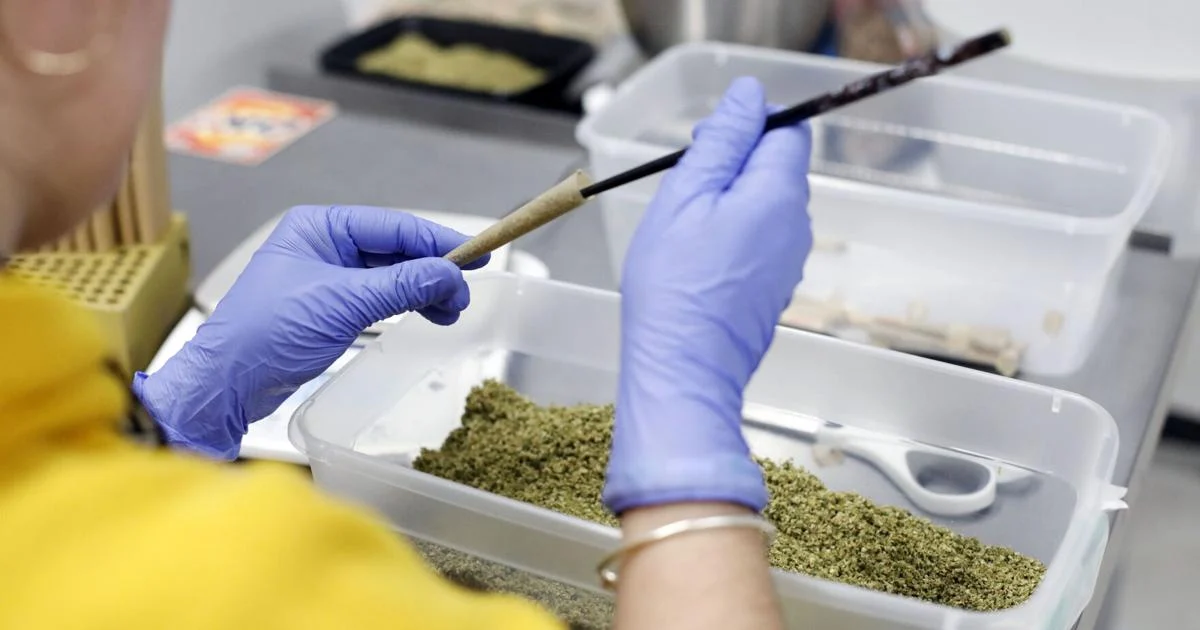Copyright berkshireeagle

It doesn’t take a lot of effort to see that legal cannabis is part of our regional economy in the Berkshires, the same way galleries, trailheads, restaurants and lodging are. It is lawful, tested, tracked and taxed. Towns across the county have built real budgets and real payrolls around this industry. But a 2026 ballot initiative now aims to pull that out of the commonwealth and stuff it back into the shadows. It would end all legal adult-use sales, shut down licensed cultivation and manufacturing, and ban home grow for adults. The proposal keeps decriminalized possession for individuals, yet removes every lawful way to obtain a safe product. That combination does not reduce demand but rather covets and creates chaos. Zoom out to the county level and the picture holds. Berkshire County has surpassed a half-billion dollars in legal cannabis sales since the market opened. That is not a one-off windfall but a steady, local flywheel that supports retailers, cultivators, manufacturers, testing labs, contractors, bookkeepers, HVAC technicians, drivers, and the restaurants and inns they patronize. It keeps dollars in our towns and visitors on our main streets. This, obviously, is a good thing. From North County, to Central County, to South County, cannabis tax revenue pays for, amongst other things, roads, recreation and basic services. These are not abstract figures. They are real dollars coming from responsible and community-enhancing businesses, from Clear Sky in North Adams to Canna Provisions in Lee, to The Pass and our Smash Hits cannabis cultivation in Sheffield and everything in between and throughout the county. Remove legal sales and the demand and consumption remains. What disappears is simply the tax base and the oversight of ID checks, labeled products, and a point of sale where community standards and safety messages live. Take away regulated storefronts and informal, cash-only markets fill the vacuum, offering zero control, as well as zero benefit to town ledgers. Proponents use the phrase “sensible policy.” I agree with the words and reject the plan. Sensible means keeping the adult-use framework and fixing what needs fixing. That looks like tighter labeling, smarter packaging, and better impaired-driving education. It looks like competitive pricing so legal products beat the illicit market, consistent enforcement against bad actors, and meaningful support for municipalities so benefits are felt in every budget cycle. Eliminating legal supply while tolerating possession would hand the entire business to unregulated sellers. We understand that certain systems have not been perfect. But our regulatory body is working through internal issues. Testing has been scrutinized and is hopefully improving, but is still better than the alternative. Which would be a lot of “no.” No lab tests. No seed-to-sale tracking. No tax dollars for towns. And no constraints on an unregulated market where kids are targeted. What protects kids is keeping cannabis in age-restricted, regulated stores, with adults behind a counter and scanners at the door. What we know for sure is that adult use keeps youth usage low. That is the point of IDs, licensing and enforcement. Push cannabis back underground and access becomes easier for the very population you are worried about. You also erase the revenue that funds prevention campaigns and youth programming. Some have asked whether the medical program remains if repeal passes. The answer appears to be yes, and that is all it deserves here. But a medical-only legal program will not be a calling card for those seeking general adult-use access, as most adults in the Berkshires are not patients. Local adult-use businesses are currently built on a system voters approved years ago. Closing that system would shutter shops and farms, not refurbish them, and moreover consumers will simply go to neighboring states that retain adult-use access, further causing capital drain from our region. Will this initiative pass? The politics are not on its side, and public support for legal cannabis in Massachusetts and nationally remains solid. The state’s indirect initiative process requires two rounds of signatures and then a high passage threshold on the ballot itself, which means it comes down to the actual votes. And it is an uphill climb. “Unlikely to pass,” however, is not the same as harmless or something to not pay attention to. So what now? First, do not sign. These petitions would erase a functioning, regulated market and replace it with a fantasy where product appears without any legal supply. That is not sensible, but rather it is incoherent. Share straightforward summaries with friends and neighbors who are on the fence. Second, insist on facts. If someone claims legalization failed, ask which part failed. Age verification at the counter? Lab testing? Seed-to-sale tracking? The millions flowing to public programs? Evidence matters. Third, remember what is at stake for places like the Berkshires. Our region has worked hard to weave legal cannabis into the tapestry of a broader four-season economy that respects neighbors and welcomes visitors. Rolling back to prohibition would rip out a healthy strand of that fabric, and potentially, set us back years. I have said before that this industry must be about more than price tags and promotions. It is about trust, sustainability and community benefit that compounds over time. None of that happens under whiplash policy. Meanwhile, the illicit market does not take a break. If repeal somehow succeeded, demand would still be here the next day, and the only supply would be the one we have spent years displacing. That is not courage or prudence. That is denial. The better path is the grown-up one we have been on: regulate, improve constantly, invest locally, and make the legal experience safer, clearer, and better than any alternative. In the Berkshires, that looks like working with town halls on traffic, signage and compliance; hiring locals; paying living wages; buying from regional vendors; and partnering with tourism and arts. It looks like telling every customer the same thing: enjoy responsibly, do not drive impaired, and keep products locked away from kids. We already know how prohibition ends. Alcohol and gambling taught that lesson. Problems do not disappear. They retreat into darker corners and spawn new ones. Communities lose control. Regulation, by contrast to the failed War on Drugs, builds trust and keeps responsibility in the daylight. This fall and next, you will hear plenty of noise about this initiative. Tune out the slogans and look at your own town’s balance sheets and business districts. Talk to the people who work in these businesses and the small contractors who keep them running. Then do the simplest, most powerful thing we ask of each other in a community. Show up and vote. In Massachusetts, your ballot is not a gesture. It decides whether the Berkshires keep the legal, regulated industry we built together or lurch back toward prohibition. This is a democratic process you can shape, right here in Lee, Pittsfield, Great Barrington, Williamstown, Sheffield, North Adams and every corner of Berkshire County. Trust is the foundation of good retail. Sustainability beats short-term gimmicks. Customer experience is the real differentiator. If we believe those things, we should keep building a market that reflects them. Vote to keep what works. Vote to fix what doesn’t. And let’s keep the Berkshires cannabis market open for responsible, regulated business.



